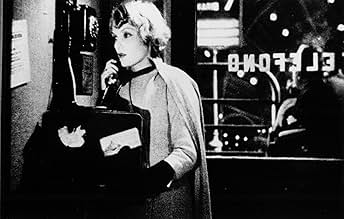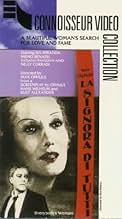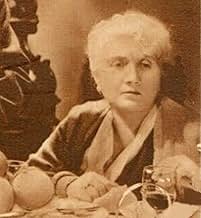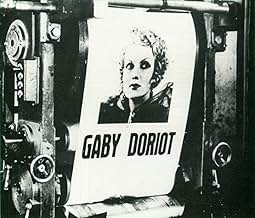Gaby is expelled from school after a married teacher commits suicide after telling her he can't live without her. Though she has done nothing, she is punished for his act.Gaby is expelled from school after a married teacher commits suicide after telling her he can't live without her. Though she has done nothing, she is punished for his act.Gaby is expelled from school after a married teacher commits suicide after telling her he can't live without her. Though she has done nothing, she is punished for his act.
- Awards
- 1 win & 1 nomination
Tatyana Pavlova
- Alma Nanni
- (as Tatiana Pawlova)
Friedrich Benfer
- Roberto Nanni
- (as Federico Benfer)
Storyline
Did you know
- TriviaZoe Incrocci's debut.
- GoofsAt around 25:00 there is a man holding a camera on the left near the fountain.
- SoundtracksIo sono nel cuore di tutti
Music by Daniele Amfitheatrof (as Daniel Dax)
Lyrics by Ruggero Larchi
Sung by Nelly Nelson
Featured review
Intriguingly, you won't find Max Ophüls' name anywhere in the credits, and the movie is listed as uncredited in his filmography. However, in some (but not all) posters of the time he is clearly identified as the director. The movie is the only one made by Ophüls in Italy (he had just fled Nazi Germany). It was commissioned by Angelo Rizzoli, editorial magnate and budding movie producer, who wanted to put on screen a novel by Salvator Gotta serialized in one of his newspapers. One may conjecture that Ophüls' name was erased from the credits to distribute the movie in Germany.
This is Ophüls' sixth film (excluding shorts) and he had already developed the innovative camerawork that he perfected in his later masterpieces: long takes, tracking shots that follow characters from room to room without cutting, 360 degree panning, multiple dissolves, elaborate flashback devices. A particularly striking sequence involves a shot/reverse shot of a conversation between a woman rowing a boat and a man driving a car on the shore. There are many brilliant scenes. The film opens with three clashes of cymbals on a dark screen, which turn out to be the beginning of a song being played on a phonograph. At the end, a character's demise is marked by presses stopping printing of her posters.
Unfortunately, Ophüls' skills are used in service of a script (adapted from Gotta's novel) so melodramatic it borders on soap opera. Acting is uneven. Isa Miranda, in one of her first roles is strangely detached and passionless and, in 1934 she was not young enough to play a teenager as she has to do briefly. Some of the other actors are over the top, perhaps trying to make something out of awkward lines.
All in all not a satisfactory movie, but Ophüls' artistry makes it worth watching. One of the initial credit screens informs us that the movie was given a prize for "technically best Italian film" in the 2nd Biennale di Venezia. Perhaps this is a just appreciation.
This is Ophüls' sixth film (excluding shorts) and he had already developed the innovative camerawork that he perfected in his later masterpieces: long takes, tracking shots that follow characters from room to room without cutting, 360 degree panning, multiple dissolves, elaborate flashback devices. A particularly striking sequence involves a shot/reverse shot of a conversation between a woman rowing a boat and a man driving a car on the shore. There are many brilliant scenes. The film opens with three clashes of cymbals on a dark screen, which turn out to be the beginning of a song being played on a phonograph. At the end, a character's demise is marked by presses stopping printing of her posters.
Unfortunately, Ophüls' skills are used in service of a script (adapted from Gotta's novel) so melodramatic it borders on soap opera. Acting is uneven. Isa Miranda, in one of her first roles is strangely detached and passionless and, in 1934 she was not young enough to play a teenager as she has to do briefly. Some of the other actors are over the top, perhaps trying to make something out of awkward lines.
All in all not a satisfactory movie, but Ophüls' artistry makes it worth watching. One of the initial credit screens informs us that the movie was given a prize for "technically best Italian film" in the 2nd Biennale di Venezia. Perhaps this is a just appreciation.
Details
- Runtime1 hour 29 minutes
- Color
- Sound mix
- Aspect ratio
- 1.37 : 1
Contribute to this page
Suggest an edit or add missing content



























